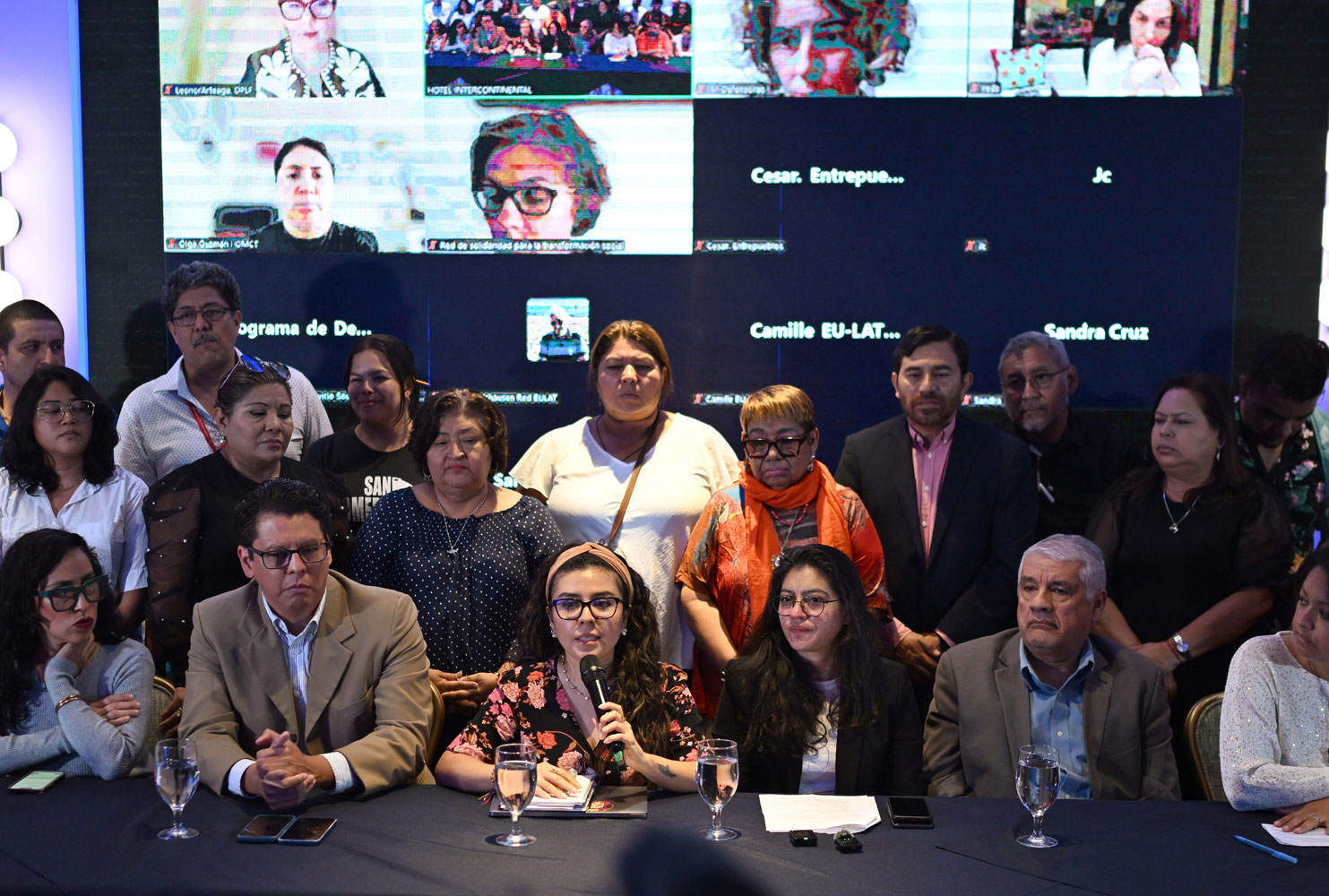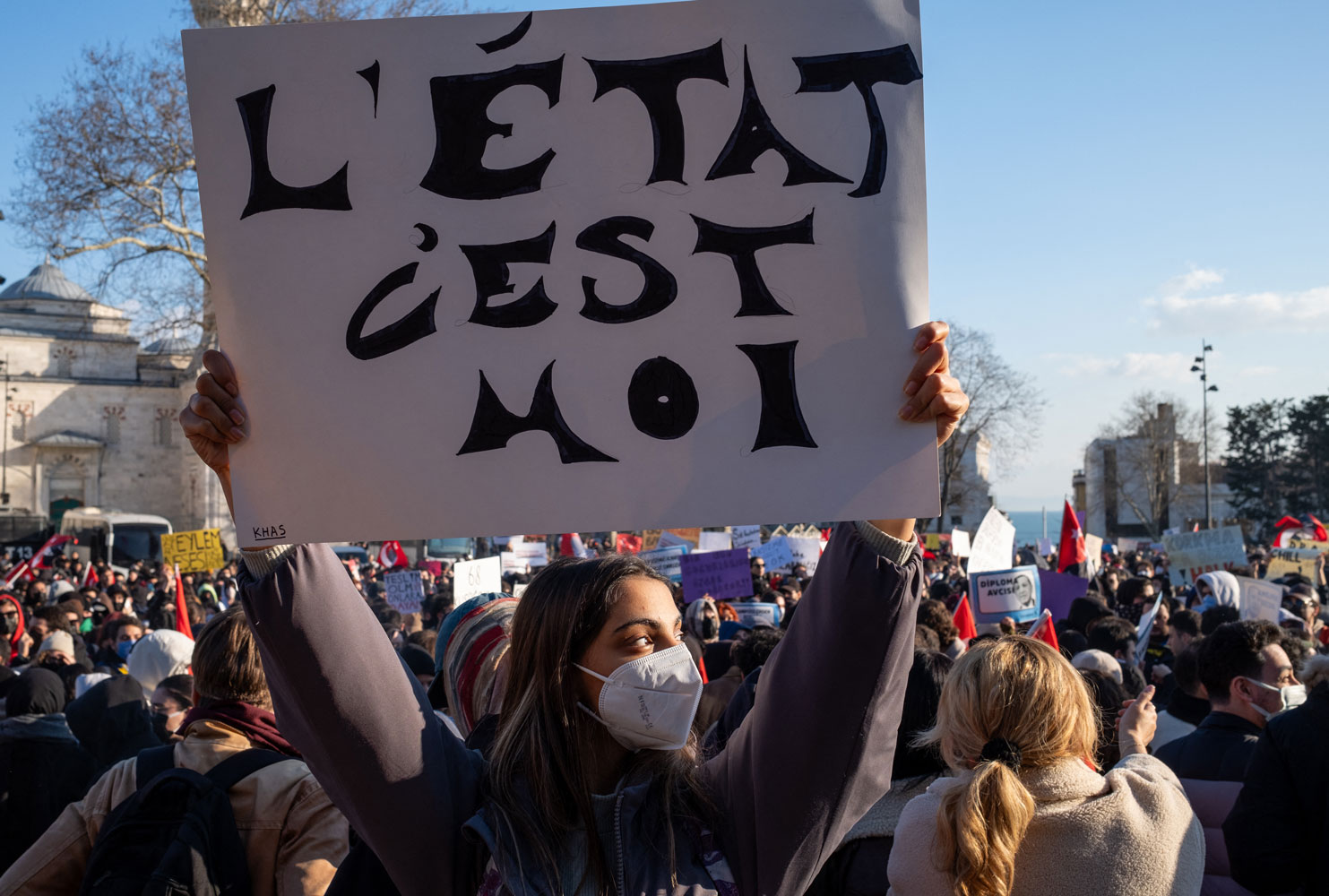Table of Contents
- Cutting civil society’s lifeline
- SUMMARY +
- INTRODUCTION +
- HISTORICAL ORIGINS The USA’s 1938 Act +
- 2004-2009 Early steps in Ethiopia and Zimbabwe +
- 2012 Russia sets the template +
- 2014-2018 Russia’s copycats +
- 2020-2022 Asia and the Americas +
- 2022-2024 Central Asia and the Caucasus +
- 2024-2025 Foreign agents laws go global +
- Trends and prospects +
- Recommendations +
- Download Report +
2024-2025 Foreign agents laws go global
The trend can now be seen on all inhabited continents, with recent examples in Africa, Europe and Latin America.
In 2024, Slovakia’s nationalist Prime Minister Robert Fico proposed a law to target CSOs that receive foreign funding, declaring that ‘the era of NGOs ruling this country is over’ and warning that organisations ‘paid from abroad’ would be labelled foreign agents. The original version of the bill required CSOs receiving over €5,000 (approx. US$5,400) from foreign sources to register as foreign agents. However, intense street protests against what people called the Russian law and strong EU pressure forced significant revisions.
The European Commission warned Slovakia it would launch immediate infringement proceedings if it followed Hungary’s example. After multiple rewrites, the bill adopted in April 2025 and signed into law in May removed the stigmatising label but retained onerous reporting requirements: CSOs with annual incomes over €35,000 (approx. US$40,700) must file detailed transparency reports, disclose donor identities and submit to Interior Ministry oversight, with potential fines and dissolution for noncompliance. Critics argue that while the law no longer uses inflammatory ‘foreign agent’ terminology, it achieves similar aims through bureaucratic means.
In February 2025, Republika Srpska, one of the political entities that make up Bosnia and Herzegovina, passed a law that automatically labelled any CSO or media outlet receiving international funding a foreign agent regardless of the amount or source. The law imposed strict reporting duties and explicitly banned foreign agent organisations from ‘influencing public opinion’, a restriction that effectively criminalised advocacy work. Civil society pointed out an obvious double standard: the government receives substantial international funding from the same sources it now deemed suspect for civil society, a hypocrisy that made clear the law was about control rather than transparency.
The law had been previously proposed in 2023 but had been withdrawn following public pressure. It was reintroduced and passed in an expedited procedure as political retaliation immediately after the President of Republika Srpska, Milorad Dodik, was sentenced to prison and banned from holding office. A civil society coalition called the passage of the law ‘a revenge attack on all critical voices’.
In May 2025, the Constitutional Court of Bosnia and Herzegovina suspended the law, arguing it mirrored Russian legislation and violated the right to freedom of association.
The government claims the law is meant to improve transparency and regulate foreign-funded organisations to prevent outside political interference, but its real purpose is to silence dissent and target independent civil society organisations, media and opposition voices.
DAMJAN OŽEGOVIĆ | Bosnia and Herzegovina

El Salvador was next to join the trend in May 2025, when the Legislative Assembly, controlled by authoritarian populist President Nayib Bukele’s party, passed a foreign agents law. According to the law, all people and organisations that receive any foreign funding must register and label themselves as foreign financed in every public communication. They are barred from vaguely defined ‘activities with political or other purposes’ seeking to ‘affect the public order’ or ‘threatening the social and political stability of the country’. On top of administrative burdens and stigmatising labels, the law imposes a punitive 30 per cent tax on all foreign grants, signalling a clear attempt to undermine the financial viability of CSOs. Though still in its initial phase, with registration with the new Foreign Agents Registry required by September 2025, the law has already forced two major CSOs, the Association of Journalists of El Salvador and the human rights group Cristosal, to close their offices in the country.

Photo by Marvin Recinos/AFP
Meanwhile, Zimbabwe’s repressive government brought in the foreign agents legislation it had threatened over two decades ago. The Private Voluntary Organisations (PVO) Act, signed by President Emmerson Mnangagwa in April 2025, imposed foreign agents-style restrictions without using the term. On the basis of national security and anti-terrorism justifications, the law imposes extensive reporting requirements and government oversight on organisations with international ties, creating a chilling effect on civil society while maintaining the legal fiction that such organisations won’t be affected if they comply with the regulations.
This law is a political weapon rather than a genuine legal framework to uphold constitutional rights or comply with international standards. It serves primarily to restrict civic space and suppress human rights work. It was passed through a flawed and opaque process, with inconsistencies in draft bills and violent disruptions of public hearings that silenced public input.
GLANIS CHANGACHIRERE | Zimbabwe

The PVO Act requires detailed disclosure of beneficial ownership and control, including foreign state influence, and subjects CSOs to enhanced risk assessments under international anti-money laundering criteria, with the minister responsible for social welfare empowered to designate organisations as ‘high risk’ based on their foreign links. It mandates strict donor due diligence, requires CSOs to report funding sources and refuse donations from ‘illegitimate’ sources and establishes agreements for sharing information about CSOs with foreign governments, effectively allowing the government to track, regulate and potentially restrict civil society groups based on their foreign connections.
ECUADOR’S SOCIAL TRANSPARENCY LAW: A FURTHER EVOLUTION OF THE GLOBAL TREND
Ecuador’s Social Transparency Bill exemplifies a common evolution in the global trend: it avoids controversial terminology about foreign agents in favour of seemingly neutral justifications based on financial transparency. The government intensified its anti-civil society rhetoric following President Daniel Noboa’s declaration of a state of internal conflict in early 2024. High-ranking officials, including Noboa, repeatedly linked CSOs to armed groups and illegal activities, portraying them as implicated in money laundering and potential threats to national stability. Building on this narrative, Noboa submitted the Social Transparency Bill, previously known as the Foundations Bill, in July 2025 and had it rapidly passed through an urgent constitutional mechanism. By late August he’d signed it into law.
While the law doesn’t formally designate organisations as agents of foreign influence, it incorporates several provisions that closely resemble those found in foreign agents laws elsewhere. It requires all CSOs and foundations to register in a Unified Information System within 180 days, disclosing detailed information about their activities, funding sources and operational structures. It subjects them to audits based on a risk assessment framework, enabling authorities to scrutinise their financial and operational activities, with a particular focus on those receiving international funding. It transfers oversight to the Superintendency of Popular and Solidarity Economy, effectively treating CSOs as economic or commercial entities, which increases regulatory burdens and subjects them to disproportionate sanctions, including potential arbitrary dissolution for vague reasons such as threats to public order or state security.
Aimed at producing a chilling effect on independent organisations, particularly those relying on international support, this law is one of many in Latin America, with similar legislation in place in countries such as Paraguay, Peru and Venezuela.
We fear the Transparency Law will be used to persecute organisations that challenge those in power, particularly those who defend human and environmental rights. We are forced to hand over sensitive information about the communities we support, increasing their vulnerability in a context of extortion, kidnappings and violence.
VIVIAN IDROVO | Ecuador

Foreign agents laws are now being proposed in many other countries – sometimes by governments with authoritarian leanings, sometimes by regressive opposition parties. In Bulgaria, for instance, the far-right Vazrazhdane (Revival) party has repeatedly attempted to pass a foreign agents registration law since first proposing it in 2015, formally submitting bills to parliament in 2022, 2023 and multiple times in 2024. Bulgaria’s parliament has rejected the bill five times, most recently in February 2025 with a vote of 112 to 38. The proposed law would require any CSO, media outlet or individual receiving over BGN 1,000 (approx. US$580) annually from foreign sources to register as a foreign agent with the Ministry of Justice, with violators facing fines and all registered foreign agents facing restrictions on working in state institutions.
Vazrazhdane claims the bill was modelled on FARA, but fact-checking by Bulgarian National Television established that it closely resembles Russia’s law, including by requiring registered agents to mark all publications with ‘foreign agent’ labels and banning them from working in educational institutions. Vazrazhdane’s renewed attempt to pass the law followed its successful passage of anti-LGBTQI+ legislation in August 2024.
In Serbia, the Movement of Socialists, a small party led by pro-Russian Deputy Prime Minister Aleksandar Vulin, first announced plans to draft a foreign agents bill in May 2024, formally submitting it to parliament in late November. The bill proposes the establishment of a registry for agents of foreign influence that would require organisations and individuals that receive over half of their funding from foreign sources to register as foreign agents with the Ministry of Justice, with severe penalties for noncompliance.
The EU’s Economic and Social Committee – an advisory body representing organised civil society that issues opinions to other EU institutions – has stated that the proposed law is incompatible with EU fundamental values and poses a serious threat to civil society’s ability to safeguard democracy and human rights. As with Georgia, its approval could jeopardise Serbia’s EU accession prospects. As of September 2025, the bill remains stalled in parliament.
In Montenegro, the proposal also came from a pro-Russian political alliance, For the Future of Montenegro, which is part of the coalition government. In October 2024, the group introduced a bill that would require foreign-funded CSOs to register as ‘foreign agents of influence’, claiming they operate outside the law and seek to shape public policy on behalf of their foreign sponsors. Following the usual script, they cited FARA as their model, although civil society noted the draft law closely followed Russia’s template. The initiative faced immediate pushback and stalled as other parliamentary parties withdrew their support.
To prevent the bill from moving forward, we need to combat the harmful narratives that demonise civil society. This included addressing public misconceptings and highlighting the positive impact of civil society organisations on Montenegro´s development.
PETAR KNEŽEVIĆ | Montenegro

In Turkey, the initiative came from the heart of the government led by authoritarian President Recep Tayyip Erdoğan. In May 2024, the pro-government newspaper Yeni Safak leaked information about an upcoming bill to expand espionage definitions to include ‘foreign influence’, introducing severe criminal penalties for activities viewed as aimed at shifting public opinion in ways considered contrary to the national interest. The bill was initially expected to be submitted to parliament before the end of the legislative year on 1 July 2024, but was shelved in May following public backlash. However, the ruling Justice and Development Party reintroduced an amended version in October, fast-tracking it through the Justice Committee in a matter of weeks. Despite some improvements, the new version still represented a threat for journalists working for internationally funded media. The bill was withdrawn ahead of a parliamentary vote in November, but there remains the danger of it returning in another form.
If public opinion, civil society and political parties don’t react fast, the government can pass any law it wants simply because the governing alliance has a majority in parliament. It is crucial that legal associations, civil society organisations and independent media speak out about how such a law would affect their work and the broader civil society and media landscape in Turkey.
GÜRKAN ÖZTURAN | Turkey


Photo by Erhan Demirtas/NurPhoto via AFP
CANADA AND FRANCE: FOREIGN INFLUENCE LAWS IN DEMOCRATIC CONTEXTS
Both Canada and France enacted foreign influence legislation in 2024. Introduced as a bill in February and signed into law in July, France’s Law 2024-850 emerged from parliamentary intelligence committee investigations that identified French vulnerabilities to destabilisation by foreign powers.
In response to documented evidence of Chinese interference in its elections and political processes, Canada followed with its Countering Foreign Interference Act, introduced in early May, which received royal assent in late June.
The French law distinguishes between influence and interference: it imposes transparency requirements on actions to influence French public and political institutions, which are considered legal, while it bans foreign interference, characterised as aimed at undermining the integrity of democratic debate and national security. It creates a digital registry managed by the High Authority for Transparency in Public Life, requires disclosure of influence activities conducted for foreign principals and establishes criminal penalties for foreign interference acts. Foreign entities outside the EU that are considered potential sponsors include companies controlled by states, foreign powers and political parties.
Passed as part of the Countering Foreign Interference Act package, Canada’s Foreign Influence Transparency and Accountability Act, not yet in force, will require registration only when three specific criteria are met: an arrangement with a foreign state, particular influence activities and engagement with Canadian political processes.
Both laws are different from the Russian template in that they target activities conducted specifically on behalf of foreign governments rather than criminalising organisations that receive foreign funding. Crucially, neither law requires CSOs to brand themselves with stigmatising ‘foreign agent’ labels.
Civil society groups have however raised significant concerns, particularly regarding surveillance powers and potential chilling effects. In France, the Observatory of Freedoms and Digital Rights warned about the law’s expansion of algorithmic surveillance techniques previously reserved for counterterrorism activities. The civil society coalition also expressed concerns that registration requirements could subject CSOs that receive foreign foundation grants to government control.
Canadian civil society has voiced similar wariness about surveillance powers and registration requirements, though government officials have continued to emphasise the law’s transparency focus rather than any prohibition of activities. These concerns reflect broader anxiety that even well-intentioned laws against foreign interference could be weaponised if political conditions change. As with Australia’s earlier laws, the challenge extends beyond authoritarian contexts to include democracies grappling with genuine security concerns.